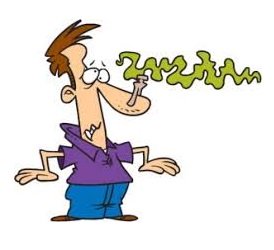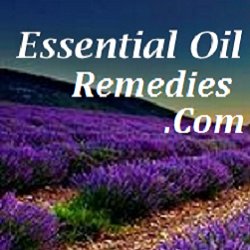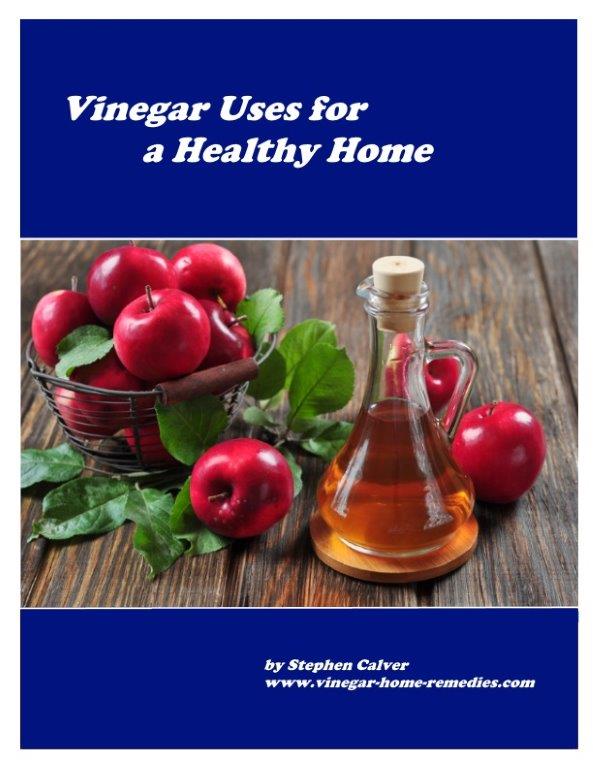Vinegar vs. Indoor Air Pollution

According to the US Consumer Product Safety Commission and the EPA, Indoor air pollution has become a more serious problem than the outdoor air in even the largest and most industrialized cities.
We have all heard the term Sick Building Syndrome used for unhealthy office buildings but did you know that the air in your own home could often be even worse?
Our website is made possible by displaying online advertisements to our visitors. Please consider supporting us by disabling your ad blocker.
What happened to Change
Our Indoor Environment?
The US Census indicates that in 1930, as much as 80% of Americans lived on farms. But by 1950 (only 20 years later) 80% of the population was living in the city. We moved from outdoors to indoors.
Today, most people spend more than 90% of their time indoors where indoor air pollution can take it's toll on our health.
Let's think about this for a moment!
Our indoor air, at a minimum, should be as bad as the air outdoors. Does that make sense to you? Now, into this already polluted environment we bring:
- hazardous cleaning solutions,
- dry-cleaning,
- smoke,
- environmental tobacco smoke,
- formaldehyde,
- pesticides ,
- radon from the ground,
- asbestos from building materials,
- biological contaminants
To Quote Marilyn Chase from a December '98 Wall Street Journal article:
Scary! But ...
What Has This Got to do With Vinegar?
Improve Indoor Air
AND Sanitize Surfaces!
Seriously!
Would you like to hear about an Indoor Air Purifier that does both?
- Makes indoor air smell thunderstorm fresh, and
- Kills 99.9 % of common bacteria & fungi on Surfaces (Kansas City State University Test Results)
I have one and will gladly tell you about it. Contact me and put "Indoor Air Purification" in the comments section.
How can vinegar possibly have an affect on indoor air pollution?
Well, vinegar may not affect many of the items on the above list but what about all the hazardous cleaning products you use everyday?
These chemical cleaners were placed at the top of the list for a very good reason.
According to statistics, the average American uses about 40 pounds of toxic household cleaners every year and these common cleaners may contain
- carcinogens,
- allergens,
- heavy metals,
- central nervous system depressants,
- neurotoxins, and
- other dangerous chemicals.
The addition of these chemicals to our indoor air pollution has been proven to cause:
- cancer,
- respiratory problems,
- allergic reactions,
- asthma,
- reproductive abnormalities,
- behavioral problems, and
- other issues.
White vinegar can replace many of these toxic cleaners and for much less cost. Eliminating chemical cleaners in your home will go a long way to reducing the chemicals you are constantly exposed to in the air you breathe and the surfaces you touch but ...
If you would like to know how you can eliminate or greatly reduce the rest of the items on the list, CONTACT ME and put "Indoor Air Purification" in the comments section.
I promise to respond as quickly as possible.
* I will never release your information to any other party and will use your email only for the purpose of responding to your request.
An Effective Combination
White vinegar and baking soda pack a walloping punch when combined.
Mix them together (1/4 cup vinegar to 1 cup baking soda) and use them as a scouring powder for stubborn spots.
Clogged drains are no match for this dynamic duo. Dump a cup of baking soda down your drain and follow up with a cup of vinegar. Then stand back and listen as they go to work on the worst of clogs. After a few minutes, you are ready for the final step. Add a few quarts of boiling water and you will be surprised at the difference.
A paste of vinegar and baking soda will replace toxic oven cleaners which contain sodium hydroxide and potassium hydroxide. This natural mixture of edible products will do the job in a matter of hours without creating noxious fumes and corrosive material that burns your skin and irritates your eyes.
Or Used Separately
Vinegar in the wash helps your clothes keep their color while at the same time giving them a fresh clean smell. You will use less detergent and it is totally safe for sensitive skin. Don't worry about a vinegar smell because the water rinses it away as if you never used any.
Caution
Do not mix vinegar with bleach as the chemical reaction will release toxic vapors.
Vinegar in the diaper pail breaks down the uric acid leaving diapers refreshed.
Removes old wallpaper, price tags, decals and other stick-on-objects effortlessly. Just add to hot water and use a sponge to soak the item for a few minutes prior to scraping.
Vinegar removes lime scaling on bathroom faucets and electric irons as well as clogged shower heads.
There are many other uses for vinegar in home cleaning so please browse the rest of this website for ideas of how to use it to reduce your indoor air pollution and have a healthier life.
Return HOME From Vinegar vs. Indoor Air Pollution
Essential Oils - God's Gift to You

If you have enjoyed www.vinegar-home-remedies.com perhaps you would be interested in my other site www.essential-oil-remedies.com
If you found this information helpful please share it ...







New! Comments
Have your say about what you just read! Leave me a comment in the box below.